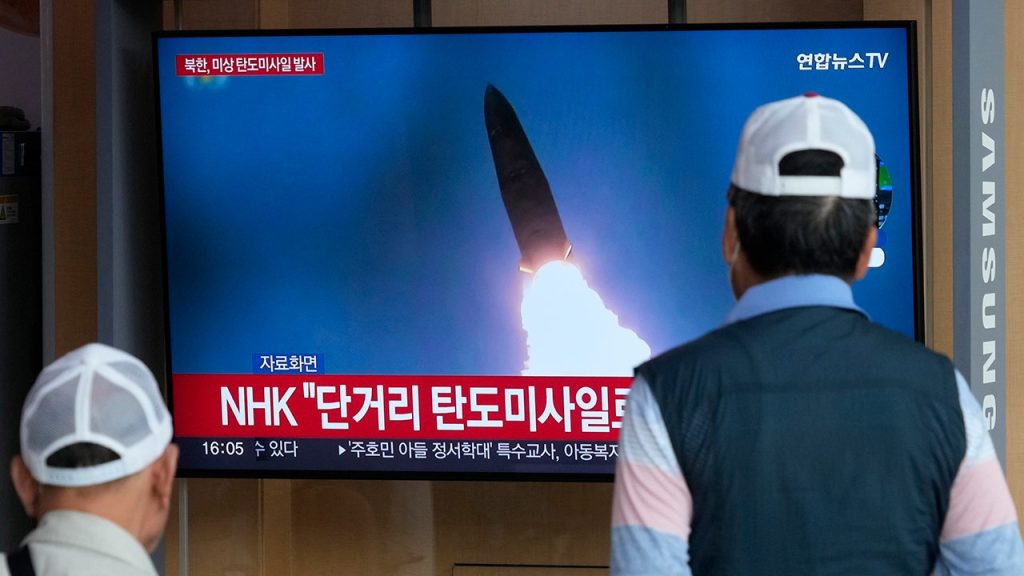North Korea launched suspected short-range ballistic missiles off its east coast following a joint military exercise between the U.S. and South Korea. The missiles were fired from the Wonsan region and traveled about 185 miles before landing between the Korean Peninsula and Japan. The missile test was considered a clear provocation by South Korea, which vowed to remain prepared to repel any potential aggressions with military assistance from the United States. North Korea’s recent spate of weapons testing is part of its efforts to enhance its arsenal while diplomatic efforts with the U.S. and South Korea remain stalled.
North Korea’s weapons testing has been ongoing in recent months as it seeks to increase and modernize its arsenal. North Korean leader Kim Jong Un oversaw the test firing of a new multiple rocket launch system last week. The country justifies its nuclear and missile programs as necessary to counter U.S.-led hostilities, pointing to joint military training exercises between the U.S. and South Korea as provocative acts. Experts believe that North Korea uses these drills as a pretext to enhance its weapons capabilities and enhance its bargaining power in future negotiations with the U.S.
A joint military exercise involving South Korean F-35As and U.S. F-22 Raptors took place prior to North Korea’s missile launch. North Korean state media criticized the deployment of U.S. F-22s to South Korea, labeling it as hostile and indicative of a confrontational stance. The Korean Central News Agency accused South Korea of escalating tensions to align with the U.S.’s “confrontation scheme” against North Korea. Kim Yo Jang, Kim Jong Un’s sister and senior official, stated that North Korea’s recent weapons tests are part of a five-year arms buildup plan initiated in 2021, with the ballistic missiles tested designed to target South Korea’s capital, Seoul.
KCNA issued a warning regarding the F-22 flyovers, stating that such actions would lead to a situation that the U.S. would not want to see, although specifics were not provided. Kim Yo Jong clarified that the weapons tested were not intended for sale to Russia but were meant to prevent Seoul from having any misguided thoughts. The escalation of tensions between North Korea and the U.S. and South Korea has raised concerns about the potential for further conflict in the region. The fluctuating dynamics and military activities in the area highlight the ongoing challenges in achieving peace and stability on the Korean Peninsula.
In response to North Korea’s continued weapons testing and escalating tensions, the U.S. has made arrests in a North Korea identity theft scheme involving thousands of IT workers. The situation in North Korea remains complex, with the reclusive regime using its military capabilities as leverage in negotiations and to deter potential threats. The reliance on military posturing by all parties involved increases the risk of miscalculation and unintended conflict. The international community continues to monitor the situation closely and work towards finding a peaceful resolution to the longstanding issues on the Korean Peninsula.


